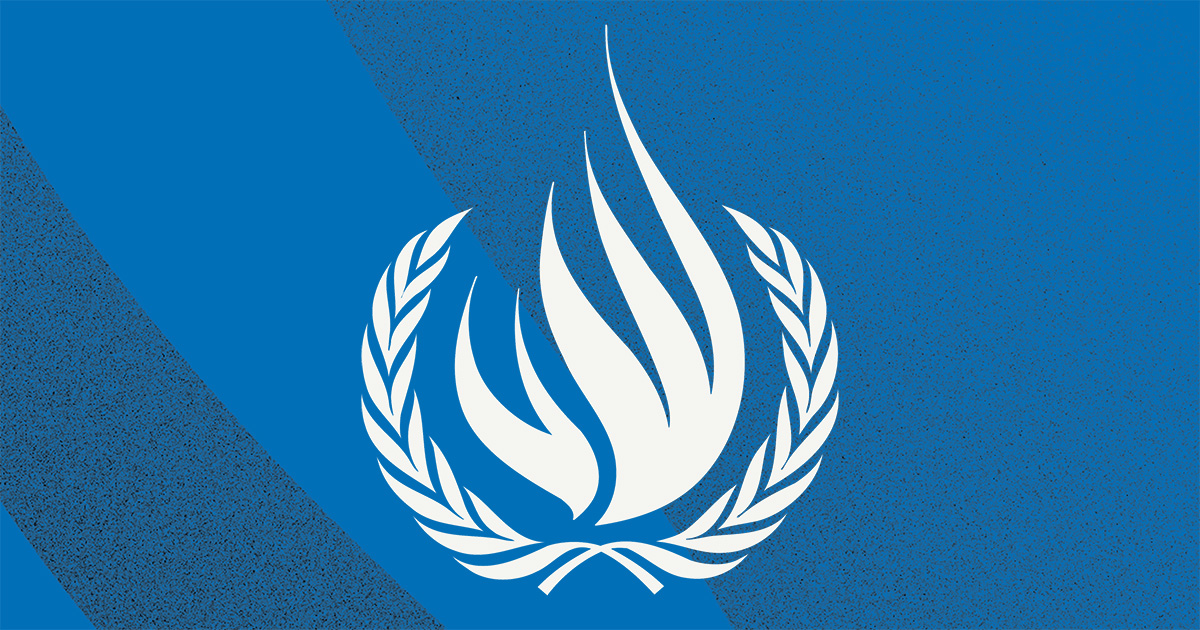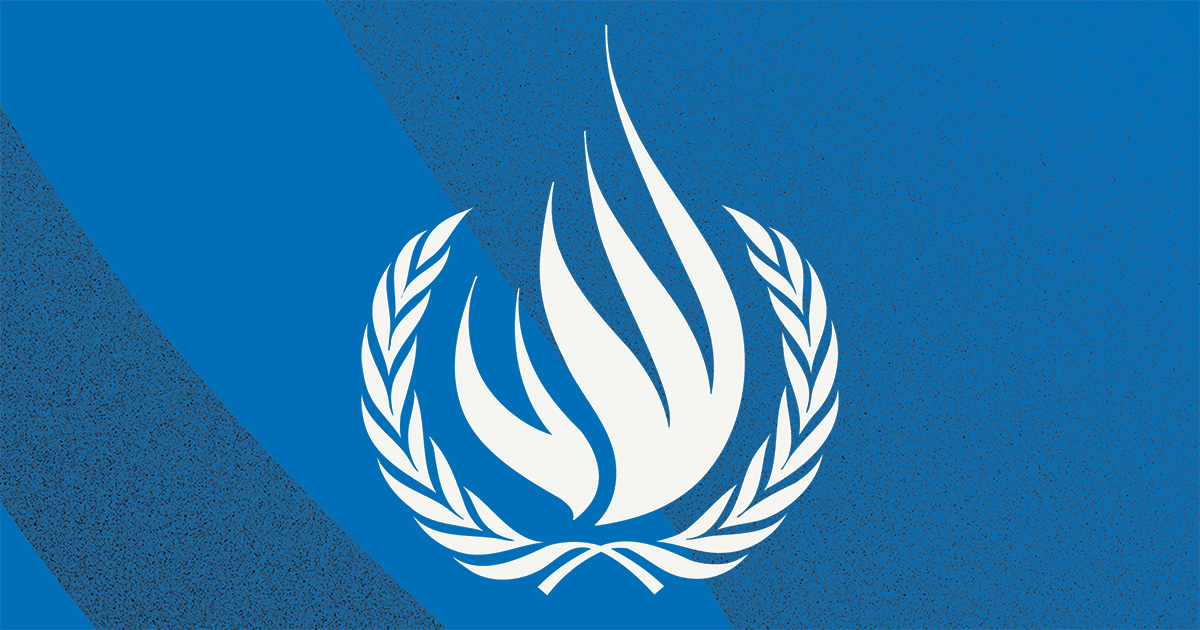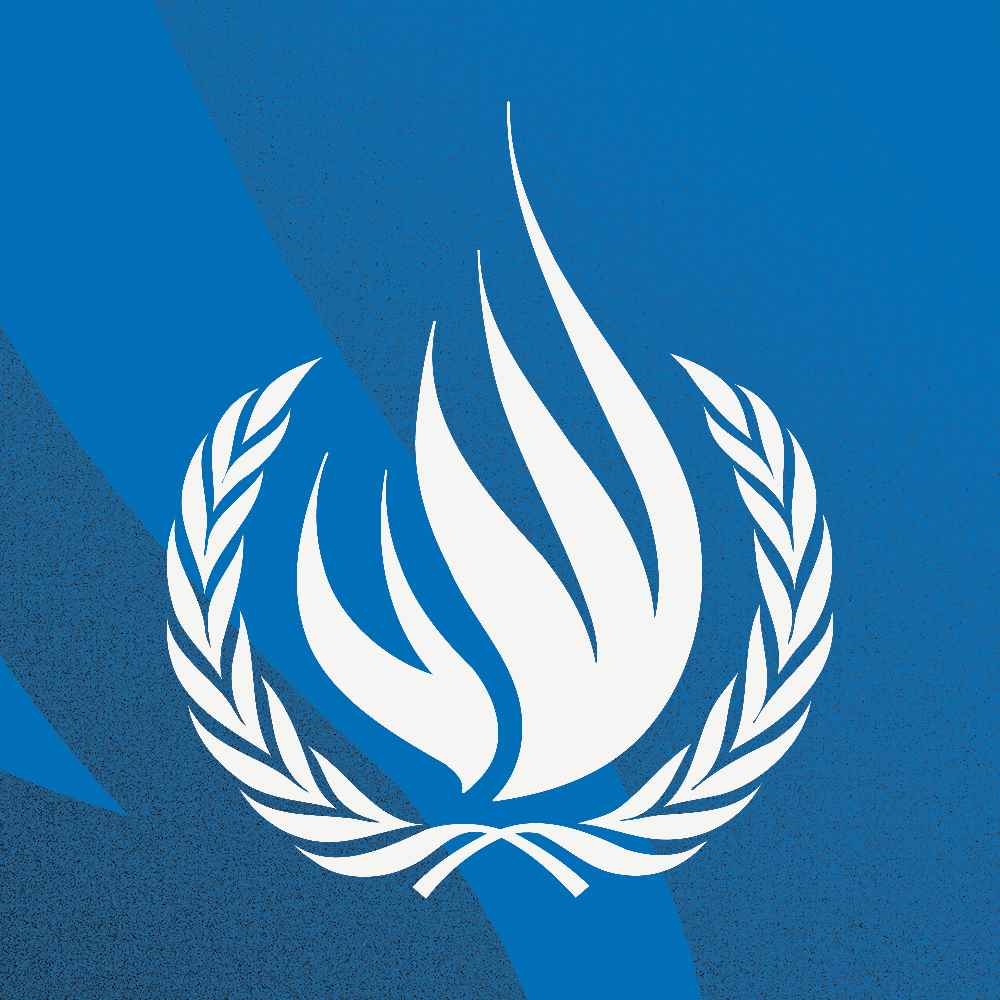
The Committee on the Elimination of Racial Discrimination today held its seventh informal meeting with States parties to the International Convention on the Elimination of All Forms of Racial Discrimination.
In the dialogue, States parties and Committee Experts discussed, among other topics, strengthening of the treaty bodies system, the Committee’s resources and working methods, cooperation with non-governmental organizations and national human rights institutes, and equitable geographic representation in the membership of the Committee, as well as the situation in Xinjiang autonomous region of China and the Gaza Strip.
Verene Albertha Shepherd, Committee Chairperson, said the dialogue had assured the Committee of the States parties’ commitment to fighting against racism and racial discrimination. She expressed hope that States parties would reinforce the treaty bodies system, including by providing it with the necessary resources to function effectively. The Committee would do its utmost to assist States and always warn them about situations of racial discrimination that deserved their attention. It would pursue dialogue not only bilaterally through State reviews but also in other fora, including in the next informal meeting with States parties in two years.
Speaking in the meeting were Brazil, Libya, Russian Federation, Australia, Venezuela, China and State of Palestine.
The Committee’s one hundred and eleventh session is being held from 20 November to 8 December. Summaries of the public meetings of the Committee can be found here, while webcasts of the public meetings can be found here. The programme of work of the Committee’s one hundred and eleventh session and other documents related to the session can be found here.
The Committee will next meet in public on Friday, 8 December at 4 p.m. to close its one hundred and eleventh session.
Opening Statements by Committee Experts
VERENE ALBERTHA SHEPHERD, Committee Chairperson, said meeting with States parties offered an further opportunity for exchange, in addition to the regular exercise of State reviews. States parties’ cooperation certified their commitment to fighting against racial discrimination and to supporting the work of the Committee, a body they had established to offer guidance on how to better implement their obligations under the Convention.
STAMATIA STAVRINAKI, Committee Vice-Chairperson, said since 2018, the Committee had had to respond to unprecedented challenges, such as the COVID-19 pandemic, and it was adopting new methods to address those challenges.
The Committee had deepened its understanding of intersectionality, such as how racial discrimination interacted with health and social status. Understanding of the intersectionality of discrimination allowed States parties to better implement preventative measures. Black feminist scholars had shown how Black women were affected by gender and racially based discrimination. General recommendation 36 recommended measures to protect against racial profiling by technology companies and State agencies. Recent developments on the evidence-based link between racial discrimination and climate change had also been incorporated in the work of the Committee. Climate change-induced displacement often occurred after racial discrimination. The Committee’s draft general recommendation 37 addressed people’s right to health and protection from racial discrimination in the health sector. It called for gender- and disability-sensitive health systems. States parties needed to provide non-discriminatory access to vaccines. The Committee had also agreed to work on a general recommendation on the rights of migrants.
The Committee was reviewing its rules of procedure and working methods, working to harmonise its methods with other treaty bodies. States parties were welcome to present suggestions for improving working methods. The Committee had adopted guidelines on how it followed up on allegations of reprisals and adopted a new format for its dialogues with States parties, which provided States parties with the themes to be discussed in advance to allow for better preparation. The new format limited interactivity in some instances. The Committee was continuing to discuss how to further improve the format. The Committee had also reformed its process of developing concluding observations to provide more targeted recommendations for States parties, and had harmonised its format for lists of issues prior to reporting with other treaty bodies.
Only 59 States parties to the Convention, around one-third, had accepted the procedure under article 14 of the Convention. Most States parties had established equality bodies but seemed less reluctant to allow the Committee to receive individual complaints. The low number of complaints submitted undermined the Committee’s ability to implement the Convention. Ms. Stavrinaki called on States parties to disseminate the complaints process. The Committee provided guarantees of independence and could help States parties to prevent future issues of racial discrimination through this process. States parties needed to provide the Committee with adequate resources to carry out fully its functions under article 14.
FAITH DIKELEDI PANSY TLAKULA, Committee Expert, said since 2015, the Committee had strengthened its cooperation with non-governmental organizations and national human rights institutes. Informal private meetings were organised to hear from such institutions. Their reports were available on the Committee’s website. The Committee harmonised deadlines for the submission of such reports with other treaty bodies. It had developed guidelines regarding its work with such human rights mechanisms, which invited non-governmental organizations and national human rights institutes to help disseminate the outcomes of the Committee’s reviews of State party reports. The guidelines also underlined the necessity to protect non-governmental organizations against any form of reprisals for their cooperation with the Committee.
MICHAL BALCERZAK, Committee Vice-Chairperson, said that as of this year, 48 States parties had overdue reports by more than 10 years. The majority had not submitted a report for 15 years or more. At least 15 States had not submitted a report for five years or more. Under the Convention, States parties had a procedural legal duty to submit reports to the Committee. The Committee expressed its concern about the situation and offered to assist States that faced difficulties in pursuing this obligation. There were good practices in cooperation between the Office of the High Commissioner for Human Rights and States parties in the preparation of reports. When the Committee did not hear from States, it was unable to exercise its mandate.
The Committee also expected States to submit follow-up reports within one year of submission of regular reports. These reports were important, as they dealt with the implementation of the Committee’s recommendations in a timely manner. Some States engaged in the Universal Periodic Review process but did not submit follow-up reports. Engagement in this process did not replace the follow-up mechanism. The ongoing reform of the treaty bodies system would not change States’ reporting obligations, which the Committee called on States to fulfil.
GUN KUT, Committee Expert, said the Committee called on all States to accept the amendment to article eight, paragraph six of the Convention, which called for the Secretary-General of the United Nations, rather than States parties, to provide the Committee with staffing and financial resources to carry out its mandate. Sixty-eight more ratifications were required for the entry into force of the amendment. The Committee reminded all States parties that had not ratified the amendment to take it into consideration and to help provide the Committee with stronger secretarial support.
GAY MCDOUGALL, Committee Expert, said the Convention was one of the most widely ratified conventions of the international human rights law ecosystem. The Convention had been ratified by countries from every region of the world. It was important that the Committee had a high level of gender and geographic diversity. The Committee only had one member from Eastern Europe and two from the Latin America and Caribbean region. Ms. McDougall called on States parties to consider electing more members from Eastern Europe, Latin America and the Caribbean.
VERENE ALBERTHA SHEPHERD, Committee Chairperson, said the treaty bodies constituted a fundamental pillar of the human rights protection system. Their growth had greatly enhanced human rights protection but also presented challenges, including a backlog of reports and diverging working methods among treaty bodies. A working paper had been developed on strengthening and streamlining the system. It proposed an eight-year predictable reporting cycle, harmonisation of treaty bodies’ working methods, and measures for a digital uplift of the system. The eight-year reporting cycle would ease the reporting burden of States, make the timing of report submissions more predictable, and increase the complementarity of reviews between treaty bodies. The digital uplift included a case record system and tools and platforms to make the treaty body system fit for purpose. These measures could only be implemented if the system was provided with the necessary budget through a General Assembly resolution in December 2024, which, if approved, would allow for implementation in 2025 at earliest.
Statements and Questions by States Parties
State parties, among other things, congratulated the re-elected and elected members of the Committee. They expressed their commitment to implementing the Convention and to eliminating racism, racial discrimination and all related intolerance, and expressed their support for the work of the Committee. States presented policies and measures implemented to prevent racial discrimination and to engage with international and national human rights mechanisms, expressing their willingness to cooperate with civil society.
States expressed support for the eight-year predictable review schedule, the harmonisation of working methods, and the digital uplift. One State called for the shortening of the time gap between the submission of reports and their review before the Committee. Another speaker said the reporting process was onerous from a human resources and financial perspective, especially for developing States, and called for further reform of the reporting process. The development of general recommendations should not lead to a broadening of the timeframe for considering country reports, one speaker said. The speaker also said that the concluding observations of the Committee should not go beyond the provisions of the Convention; that there needed to be a solution to the Committee’s backlog; that the simplified reporting procedure did not give a full picture of States’ implementation of the Convention; and that there needed to be a predictable review cycle that did not interfere with other major events. The speaker called on the Committee to uphold multilingualism.
One State party asked for an update from the Committee regarding recent actions taken under its early warning and urgent action procedure in relation to the human rights situation in Xinjiang autonomous region of China. Another speaker said that the Committee had seriously undermined its credibility by not engaging with the State party concerned in developing its decision on the situation in Xinjiang autonomous region of China, which was based on false information presented to smear China. Xinjiang enjoyed prosperity and religious freedom, the speaker said, calling on the Committee to work impartially and objectively.
One speaker expressed alarm at the scale of violence occurring in the Gaza Strip. The Committee’s statement on the issue was a good first step. The Palestinian people were being collectively punished, and further action was needed to stop Israel’s violent activities.
Responses by Committee Experts
Committee Experts said that working on a general recommendation did not take away from the time allocated to national reports. Work on general recommendations was mostly done in the intersessional period and did not detract from overall Committee capacity. General recommendations consolidated the work of the Committee and provided better explanations of human rights violations, helping to prevent them.
The simplified reporting procedure was not compulsory. For many States in the Global South, the simplified procedure offered them a way of appearing before the Committee. Many smaller and developing States had increasingly been making use of the hybrid meeting format to engage with the Committee. The Committee hoped that this methodology would help some States to reduce their reporting backlog. One Expert called for suggestions from States regarding methods of improving the efficiency of the reporting procedure.
The early warning and urgent action procedure was a very important aspect of the Committee’s work. It allowed the Committee to take up crucial matters and to speak out against racial discrimination at an early stage. The Committee was very careful in performing background checks before issuing statements through the procedure. The Committee had initially addressed the issue of the human rights situation in Xinjiang autonomous region of China in its dialogue with China, but the situation had worsened since that time, hence the Committee felt it necessary to issue a statement on the topic.
States parties needed to consult with non-governmental organizations in preparing reports. Reports from non-governmental organizations were made available to the public on the Committee’s website, unless a non-governmental organization requested that its report was not made public; 90 per cent of such reports were made public.
One Committee Expert said that the territory of the Palestinian people was disappearing. Civilians, including children, were suffering bombardments from the Israeli army and had nowhere to go. The Committee and States had a responsibility to demand a ceasefire and a stop to the killing, and to ensure that injured persons could access medical care. The Committee needed to show compassion for the Palestinian people, who had been suffering for decades, the speaker said. Another Committee Expert said that in October, the Committee had issued an early warning and urgent action statement, which called on all concerned in the international community to petition the warring parties to engage in a non-conditional and total ceasefire. The Committee was also developing an additional decision since the resumption of the conflict, calling on all parties to establish a permanent ceasefire. The Committee was doing what it could to speak out as loudly and forcefully as it was able to on the topic. The Committee had acted upon a communication from the State of Palestine regarding the actions of Israel in 2021, another Expert said, establishing an ad-hoc conciliation commission. The issue had always been a concern for the Committee, which was considering ways in which it could contribute to a solution.
One Committee Expert called on Latin American States to elect members to the Committee. At the start of January next year, there would be no members of the Committee from Latin America. There needed to be more representatives of the region on the Committee.
Closing Remarks
VERENE ALBERTHA SHEPHERD, Committee Chairperson, expressed thanks for the exchanges, which had assured the Committee of States parties’ commitment to fighting against racism and racial discrimination, and of their continued support for the work of the Committee and the treaty bodies in general. Ms. Shepherd expressed hope that States parties would reinforce the treaty bodies system, including by providing it with the necessary resources to function effectively. The Committee would do its utmost to assist States and always warn them about situations of racial discrimination that deserved their attention. The Committee would pursue dialogue not only bilaterally through State reviews but also in other fora, including in the next informal meeting with States parties in two years.











